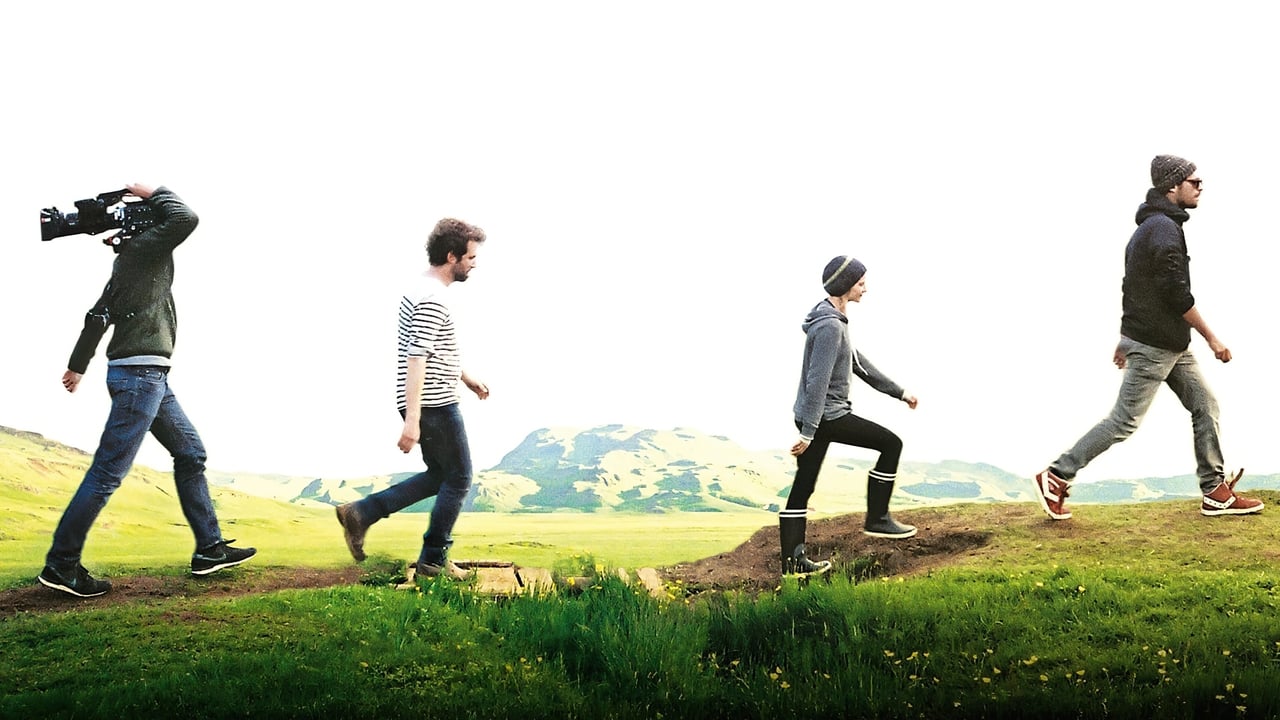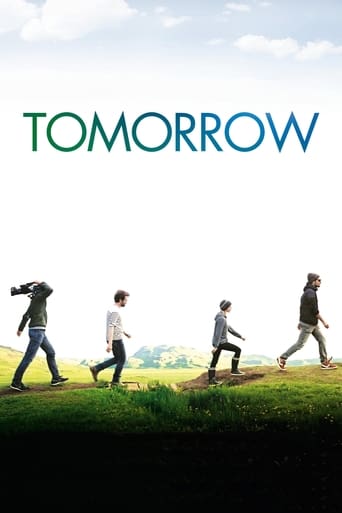Breakinger
A Brilliant Conflict
Roy Hart
If you're interested in the topic at hand, you should just watch it and judge yourself because the reviews have gone very biased by people that didn't even watch it and just hate (or love) the creator. I liked it, it was well written, narrated, and directed and it was about a topic that interests me.
Fulke
Great example of an old-fashioned, pure-at-heart escapist event movie that doesn't pretend to be anything that it's not and has boat loads of fun being its own ludicrous self.
Cristal
The movie really just wants to entertain people.
martinescuandra
The world needs more films like this one: inspirational, educational, meaningful and mindful. Excellent work!
Oleksandr Melnyk
Optimistic film about the sad end of our world. The authors fantasize about how the planet can escape from the globalization that destroys it. Film gives the examples of autonomous communities, local economies, implemented or revived ideas that can be effective mechanisms for rescue from the sixth wave of extinction. Which, by the way, the authors categorically attribute to human activities. Researchers' arguments are based on the examples which are not some freak phenomenons, but a very real experience of successful farms, businesses, cities and even countries.From the artistic point of view the film also has a fair value. Temporytm is provided by the interesting plans, offscreen dialogues, unobtrusive infographics and a wonderful soundtrack. Non accidental and very stylish music - is the most successful technical solution that adorns the story.The film is generally bright, shot in light colors, and the characters turn to the audience with a lively optimism, though they are saying that in 100 years we can disappear as a species if we will not start to make at least some effort for our own salvation.This film brought the second Cesar to the star of 'Inglourious Basterds' Mélanie Laurent. Only the first she has received as an actress for the movie "Do not worry, I'm fine" in 2007, and now she has won as a director in the category Best Documentary Film.Clearly, the picture is noteworthy. Especially it will be interesting to those who are concerned about environmental issues, globalization, urbanization, etc. It is unlikely that it will move the boulder of all- consuming capitalism, reach out the hearts of politicians and businessmen. But many things are going to clarify.
commenterprise
This documentary was without a doubt, outstanding! It was informative and inspiring, with wonderful examples of cities and towns, schools, individuals who really are 'living what could/should be', not to mention the great soundtrack! It was almost a full theatre, and at the end, most of us stood up and clapped! This was in France (St Jean de Luz).I'm going to suggest it to our cinema owner in Sechelt, BC. It is truly a Must See for anyone who is interested in joining conscientious individuals/communities who want to see us have a 'tomorrow' for our children! * My question is, we want to see it in Canada, and I wonder ~ ASK ~ Why this documentary is not shown everywhere? in other countries?
alexandros-15
I rarely have the time to write reviews lately even though i would love to. Avid movie goer and supporter of zero carbon economies, I felt i wasted my time watching Demain, so warning others motivated me to write this one.The first three chapters (agriculture, energy, economy) are bearable because they are in the right direction, including some good interviews such as with Jeremy Rifkin, yet they are broadly banal because they mostly project well known, and often old, stories as something revelatory, new and the future. The European Union has doubled from 8% to 16% in the last ten years the contribution of renewables to the energy mix, with many countries already by 2014 having achieved the 20% target which is supposed to be achieved by 2020. Did we really need pictures of wind farms in Denmark to find out that there is an alternative future? In the first three chapters, my impression was the creators of the movie felt they had just discovered "America".The last two chapters (democracy and education) were worse, trying to talk about hugely complex issues with amateuristic banality and simplifications, e.g the interviewer asks a teacher in Finland about what the projected as ground breaking new teaching techniques are to hear as a response that their objective is to promote tolerance. Finally, i found the way the film was presented as a bit manipulative with all the pictures about the alternative futures being framed in idealistic settings, shot in sunny days, beautiful sunsets, or sitting by the sea on a warm summer day. I guess in the real world it does rain too sometimes, and to be credible and avoid descending into propaganda one has also to address the challenges too. I feel a good documentary should encourage debate and present different views. Nothing of this here. I agree with the direction of the movie: urban farming, low or zero carbon economies, local community economies to balance the excesses of global capitalism, my views too. In short, promoting more resilient societies in an increasingly globalised world. My disappointment comes from my belief that misguided efforts to popularise alternative futures and misplaced enthusiasm could do more harm than good, creating cheap expectations that everything is possible and fast, generating simplistic readings of a complex world, and offering cheap optimism where they should encourage personal responsibility. As Jan Techau wrote recently: If you rely on the rage of the people more than on the merits of your own idea, then your case is weak.Alternative futures to be sustainable require dialogue between competing social interests not competing activisms each glorifying its own alternative.

